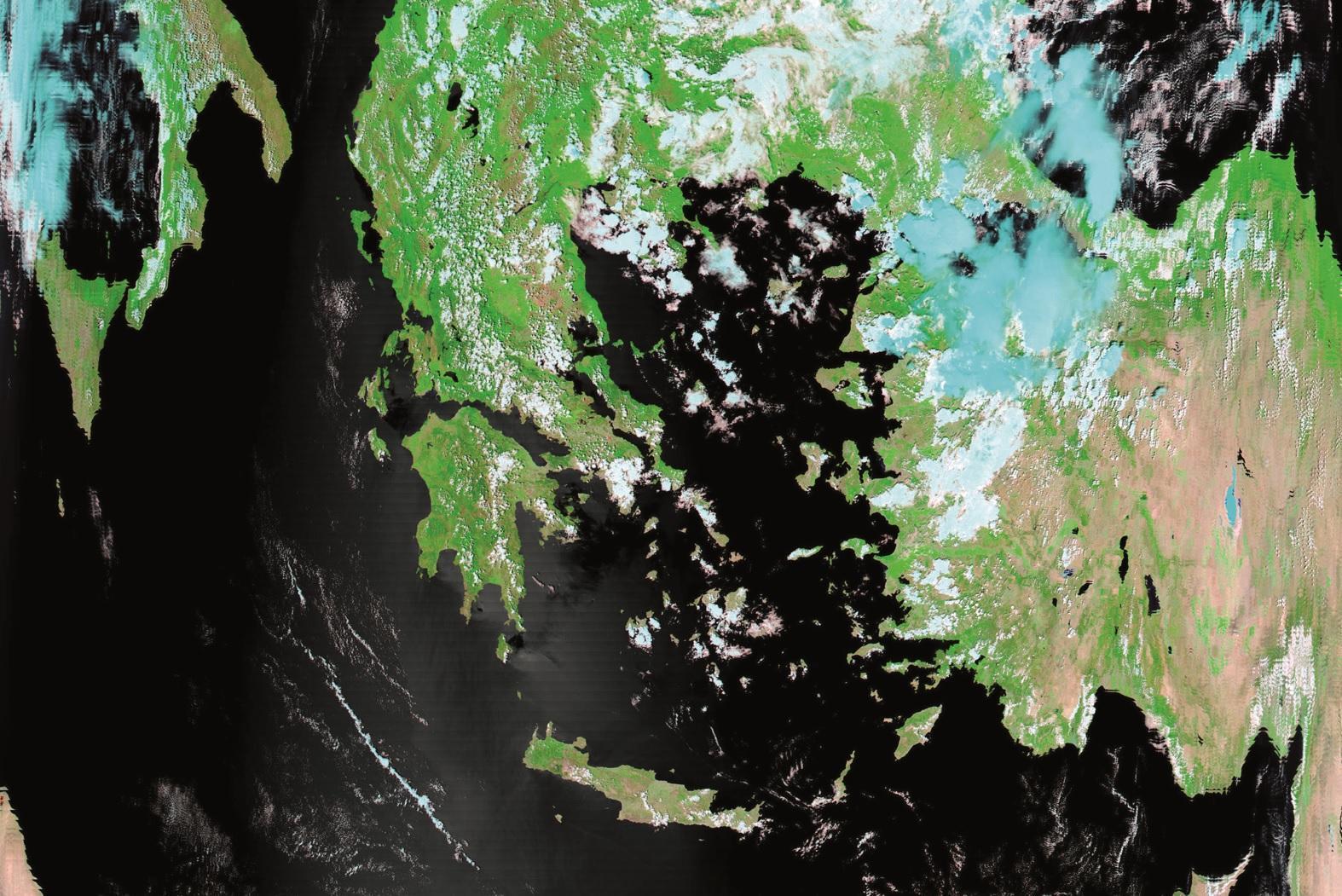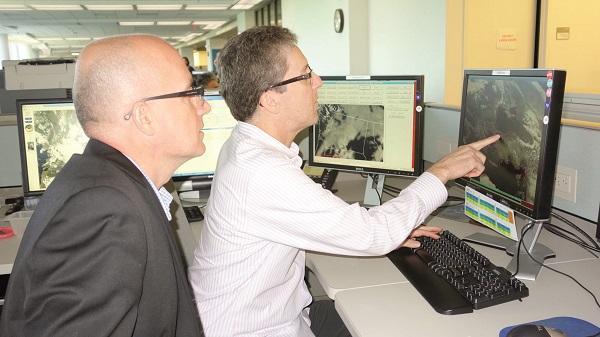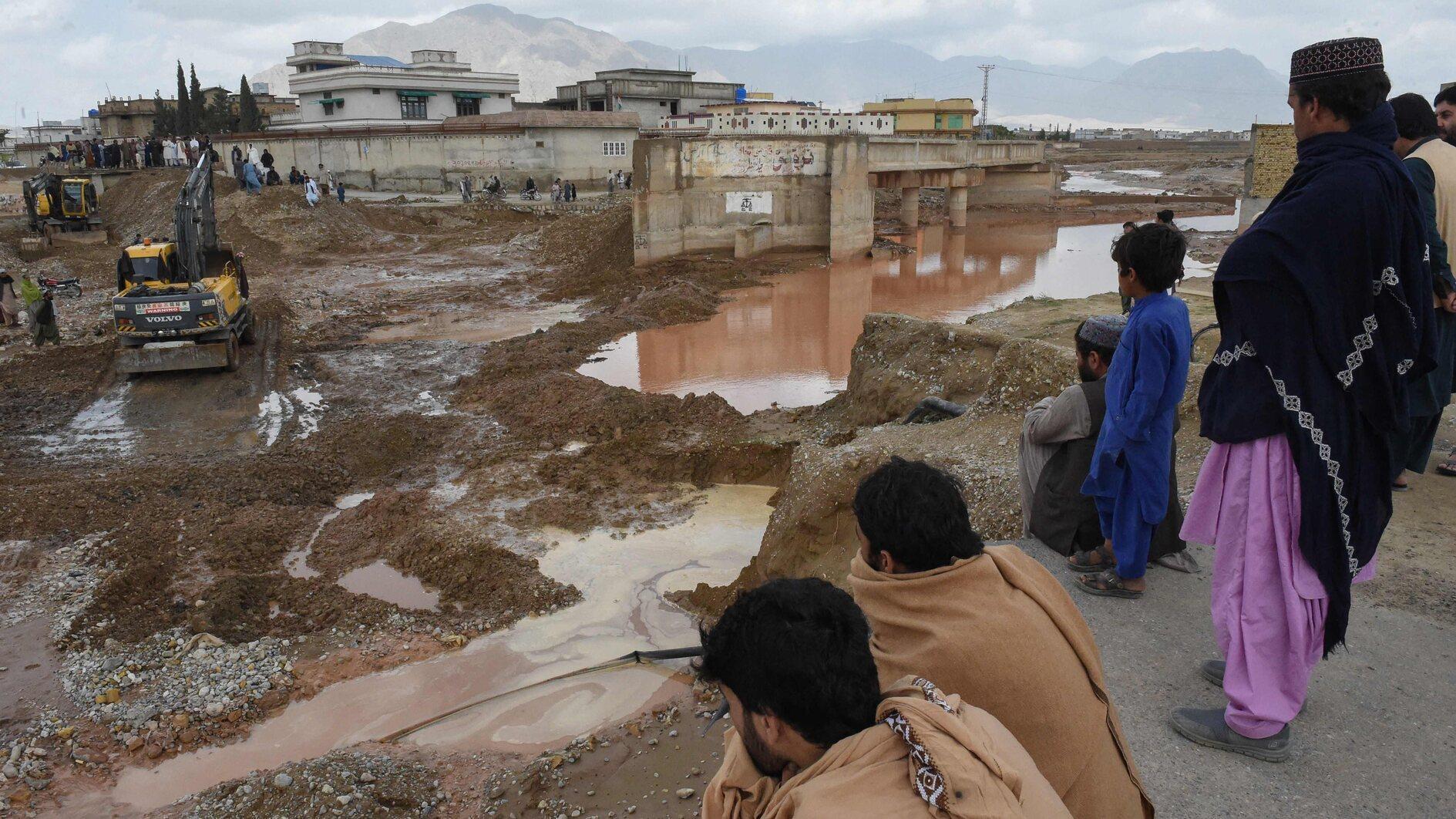Istanbul tornadoes a ‘result of urbanization’
Razi Canikligil - College Park

The latest tornado hit central Istanbul on Aug. 2.
The freak mini-tornadoes that have recently been hitting Istanbul are possibly one result of the city’s rapid urbanization, according to leading climate change researchers in the United States.Hürriyet’s correspondent visited the National Oceanic and Atmospheric Administration’s (NOAA) Center for Weather and Climate Prediction in College Park, Maryland, on Aug. 13, hoping to better understand the wave of unusual tornadoes hitting Istanbul over the past few weeks.
Researchers at the center shared the NASA satellite images of the storm that spawned a non-supercell tornado in central Istanbul on Aug. 2, the first such tornado in years.

“We observed the Istanbul tornado here, but we didn’t study it as it was not expected to affect the United States. It was interesting though, because we know that tornadoes are exotic to Istanbul, like snow is to Florida,” Forecast Operations Chief Ed Danaher told Hürriyet.
“It is very hard to predict the possible changes in the number and locations of tornadoes in Turkey,” said the NOAA’s hurricane expert, Harold Brook, adding that public awareness on the issue was low in Turkey and only a few scientific studies have been conducted.

Dr. Martin Hoerling, a research meteorologist specializing in climate dynamics at the NOAA’s Earth System Research Laboratory, said there was “no doubt” that freak weather phenomena will increase in Turkey, putting this down to climate change.
“Turkey is among the countries that are affected by climate change. Temperatures in Turkey will rise by 5-10 percent from 2046 to 2065. If they increase an average of 3 degrees, it will mean a 20-30 percent decrease in precipitation,” Hoerling said.
Winters are increasingly more arid in Turkey, while short thunderstorms are causing more flash flooding in summers without contributing enough overall rain to water levels, he also said, adding that these factors are combined with undoubtedly human-made climate changing acts such as the use of fossil fuels and deforestation. As the humidity in the air over Istanbul increases, tornadoes are spawned whenever a cold front hits.
In short, with mini-tornadoes likely to become a more common sight in rapidly urbanizing Istanbul, they may even soon stop triggering social media storms whenever they happen.
















